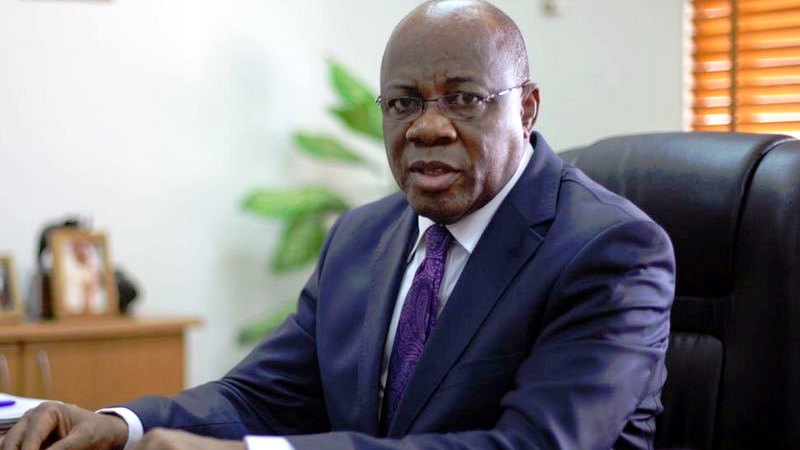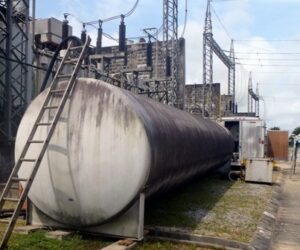A Senior Advocate of Nigeria and former President of the Nigerian Bar Association (NBA), Olisa Agbakoba, has proposed a set of structural reforms to the federal government of Nigeria, which he said could “unlock over ₦1.5 quadrillion” in economic value and stabilise the naira.
The senior lawyer made the proposal in an open letter addressed to Nigeria’s minister of Finance, Wale Edun, on Sunday.
In the letter, titled “Ideas for a Quadrillion Naira Economy in 10 to 15 Years,” Mr Agbakoba identified land and real estate titling, expansion of a credit economy, and agricultural mechanisation as key drivers that could create tangible economic fundamentals to strengthen the naira and accelerate long-term growth.
He, however, argued that exchange rate volatility remains Nigeria’s most pressing challenge, and that the naira’s weakness stems from a lack of real economic fundamentals.
According to him, comprehensive reforms in property titling, credit access, and agricultural productivity would convert “dead capital” into active wealth, deepen naira-denominated asset markets, and create sustainable prosperity for future generations.
Mr Agbakoba’s letter came amidst claims by the federal government of recent economic progress, including growth in Gross Domestic Product (GDP) , declining inflation, and stabilised exchange rates.
Background
Recently, Mr Edun claimed that Nigeria has triumphed over its toughest economic phase, and is now steadily walking the path of recovery, with the most challenging stage of attaining growth now confined to the past.
This, the minister said, was due President Bola Tinubu’s “radical and holistic” approach to economic development by means of reforms that has enabled that, with stability now assured, following years of fiscal distress.
“I believe the most difficult phase of our economic journey is behind us. Nigeria has turned a decisive corner,” the minister remarked at the time.
“The road ahead will demand hard work and discipline, but we are firmly on the right path.”
Mr Edun recalled that when President Tinubu assumed office in 2023, the economy was battling an existential crisis, hit by slow growth, hyperinflation as well as headwinds from costly petrol subsidies and multiple exchange rate regimes that were keeping investors at bay.
He said that the administration’s early decisions in ending subsidy spending and unifying exchange rates were difficult but crucial to restoring stability and attracting private investment.
Two years on, the outcomes of those choices are noticeable at the macro level, he pointed out, drawing attention to the 4.2 per cent GDP growth rate recorded in the second quarter, inflation currently at 18 per cent after six months of decline and the foreign reserves’ jump to a peak of $43 billion since 2019 as obvious wins.
Mr Edun, nevertheless, acknowledged that for most citizens, progress is measured not by data but by the price of food and transport.
“Food inflation has been our heaviest burden,” he admitted, adding that targeted measures are beginning to ease pressure.
“A bag of rice that cost about N120,000 last year now averages around N80,000.”
According to him, 8.1 million households have received direct cash transfers to cushion the impact of tough reforms, and efforts are under way to reach 15 million in all once identity verification challenges are resolved.
“Untapped opportunities”
In his letter to Mr Edun, Mr Agbakoba urged the federal government to beam more light on some critical sectors of the economy to achieve maximum growth and real impacts.
He said Nigeria’s land and real estate sectors hold vast untapped wealth due to defective or non-existent property titles, which prevent assets from being used as collateral or traded in the formal economy.
While citing the World Bank, PwC, and his firm, Olisa Agbakoba Legal (OAL), he argued that nearly 90 per cent of Nigerian land and real estate remain “dead capital.”
He explained that proper titling could transform these assets into legally recognised property that can generate credit, liquidity, and large-scale investment.
Additionally, the Senior Advocate urged the federal government to accelerate the ongoing National Land Registration, Documentation and Titling Programme to digitise land records and harmonise regulations across states, saying the reform could unlock up to ₦1.5 quadrillion in economic value.
Credit Economy Expansion
Similarly, Mr Agbakoba also called for the development of a robust legal and policy framework to support a national credit system. He noted that Nigeria’s predominantly cash-based economy restricts growth, as citizens can only purchase what they can afford outright.
“A thriving naira credit market will deepen domestic financial markets and make the naira more attractive as an asset, and reduce the speculative attacks that drive exchange rate volatility,” he said. Noting that when citizens can access credit in naira to own homes, start businesses, and build wealth, the currency gains intrinsic value and stability.
He added that if 200 million Nigerians each had access to ₦300,000 in credit facilities, it would inject about ₦60 trillion into the economy and create a strong domestic market for naira-based transactions.
Agricultural Mechanisation
Highlighting agriculture as another critical area for transformation, Mr Agbakoba compared Nigeria’s low productivity to that of the United States, where a smaller workforce contributes significantly more to GDP through mechanisation and value-chain development.
He said moving from subsistence farming to mechanised agriculture would increase productivity, reduce food imports, enhance food security, and boost foreign exchange earnings.
This, he noted, would not only strengthen the naira but also reduce inflation driven by imported goods.
Long-Term Vision
The Senior Lawyer projected that if these reforms are effectively implemented alongside complementary measures in oil, gas, and manufacturing, Nigeria could transition to a quadrillion-naira economy within the next 10 to 15 years.
He described the reforms as “painstaking but achievable,” noting that the success of recent tax reforms shows the government’s ability to deliver structural change when backed by political will and sustained execution.
“The difference between incremental improvement and transformative change is ambition matched with execution,” he said. “These reforms would not merely stabilise the naira; they would fundamentally restructure our economy and create sustainable prosperity for generations.”
Read Mr Agbakoba’s full letter to Mr Edun below:
RE: IDEAS FOR A QUADRILLION NAIRA ECONOMY IN 10 to 15 YEARS
I refer to your recent statement, “Nigeria Turns Towards Prosperity.” You highlighted the Tinubu government’s significant achievements, including GDP growth, declining inflation, stabilised exchange rates, increased foreign reserves, and improved oil production.
Despite these successes, exchange rate volatility remains our most pressing challenge. We currently have one of the highest currency volatilities in Africa, with the naira depreciating by over 40% in 2024 alone, ranking among the continent’s worst-performing currencies. With 1 billion naira worth less than 1 million dollars, demand naturally tilts toward the dollar. The root cause is simple. The naira lacks fundamentals—tangible economic pillars that give people reason to hold and use. To reverse this, we must create fundamentals to back the naira. I propose three transformative reforms that could create these fundamentals and unlock over 1.5 quadrillion naira in economic value. The first is land and real estate titling.
- Land and Real Estate Titling Reform
Studies done by the World Bank, PwC, and my firm, OAL, show that 90% of Nigerian land and real estate have tainted, defective, or no titles. This creates “dead capital”—assets that cannot be traded, serve as collateral, and cannot be indexed to the financial system. Economist Hernando de Soto demonstrated in his book “The Mystery of Capital” that converting dead capital into productive assets through formal property rights revolutionises developing economies.
Margaret Thatcher called De Soto’s work a potential “enormously beneficial revolution” that addresses the fundamental weakness of Third World economies: the lack of property rights and enterprise frameworks.
Property titling reform transforms dead capital in land and real estate into legally recognised assets. Owners can use their land or homes as collateral to access credit. Banks become willing to lend because the property now represents secure collateral with enforceable legal backing. This process releases the equity locked in land, converting illiquid assets into financial capital that can circulate through the economy. The result is substantial new liquidity—more individuals and businesses gain access to loans, properties become tradable assets, and dormant wealth enters productive use.
The foundation for reform is already being laid. Your administration is implementing the National Land Registration, Documentation and Titling Programme, which aims to digitise land records and create a unified, transparent system. What is needed now is acceleration and scale. By indexing property values to the financial system through digital integration and legal harmonisation across federal and state systems, we can create an instant credit market worth potentially thousands of times our GDP. The money flow would then be available to finance development across the nation.
Unlocking trapped property assets that are presently dead capital will encourage investors who currently prefer to buy properties abroad to buy in Nigeria. This will deepen naira-denominated asset markets, reduce dependency on dollar-denominated assets for wealth storage, and strengthen demand for the naira by creating viable local investment alternatives. Using the World Bank and PwC’s conservative estimates of $900 billion in dead capital, at today’s rate of ₦1,500 to $1, this represents 1.5 quadrillion naira. The economic impact of releasing 1.5 quadrillion naira into productive use cannot be overstated. If this is done with the same strategic approach as the tax reform, it will transform Nigeria’s economy, provide sustainable backing for the naira, and create the foundation for long-term prosperity. By creating a vast, liquid real estate market indexed to the financial system, land titling reform establishes a critical fundamental that anchors the naira’s value and dramatically reduces exchange rate volatility. I must also acknowledge the challenges of inflationary pressure. Let me now move to the next coequal fundamental, and that is a credit economy.
- Credit Economy Expansion
Nigeria operates a cash economy. This limits the economy’s potential because people can only buy what they can afford. By contrast, a well-developed credit system allows people to buy what they cannot afford, provided they manage their debt. For instance, 90% of Americans cannot afford a house without a mortgage. In the same vein, any Nigerian who can pay rent can afford a mortgage, but this is not possible without a legal framework.
A robust policy and legal framework to support a credit process will be transformational. 200 million Nigerians, each with ₦300,000 in credit facilities, would inject ₦60 trillion into the economy. Naira-denominated credit will boost domestic consumption of locally produced goods and services, reduce import demand and foreign exchange pressure. A thriving naira credit market will deepen domestic financial markets and make the naira more attractive as an asset, and reduce the speculative attacks that drive exchange rate volatility. When citizens can access credit in naira to own homes, start businesses, and build wealth, the currency gains intrinsic value and stability. This credit infrastructure becomes a vital fundamental—a reason for people to hold and transact in naira—thereby reducing our vulnerability to exchange rate shocks.
- Agricultural Mechanization
In the United States, only 2% of the workforce are in agriculture, yet the sector contributes 5.5% to GDP and generates $1.5 trillion annually. In Nigeria, by contrast, 30 to 38% of the workforce, 15 to 19 times more workers proportionally, is employed in agriculture. With our GDP at approximately $188 billion, the sector contributes 25 to 26% to GDP but generates only $47 to 49 billion annually, less than one-thirtieth of America’s agricultural output, despite having a vastly larger workforce.
This stark disparity reveals a fundamental truth: productivity, not the number of workers, determines agricultural success. America achieves higher output with fewer workers through mechanisation and a fully developed value chain: cold storage facilities, food processing plants, packaging companies, logistics networks, agricultural equipment manufacturing, fertiliser production, warehousing, quality control laboratories, marketing and distribution channels, agricultural finance services, and export infrastructure.
Nigeria, meanwhile, remains trapped at the subsistence level using manual tools: hoes and cutlasses. The transformation we need is mechanisation, and the potential money flow would be tremendous. With a well-developed policy and legal framework, capital will flow into the economy. The agricultural sector is badly impacted by the titling challenge, as defective and tainted land titles are precisely why we remain at the subsistence level. Farmers cannot access capital for mechanisation without proper collateral.
Moving from subsistence to mechanised agriculture will increase productivity, reduce post-harvest losses, enhance food security, and position Nigeria as a net agricultural exporter. Agricultural exports will generate substantial foreign exchange earnings, increasing FX supply and strengthening the naira. More critically, food self-sufficiency will eliminate the need to import basic staples, currently a major source of FX demand.
Reducing food imports alone could save billions of dollars annually, directly stabilising exchange rates and reducing imported inflation. When a nation feeds itself and exports the surplus, its currency strengthens naturally. Agricultural transformation thus creates a powerful fundamental: robust FX earnings and reduced import dependency that provides lasting stability to the naira and shields it from volatility.
What I have done here is to show that if these three reforms are implemented, along with many others like oil and gas, maritime sector optimisation, and manufacturing, and are fully developed to back the naira, the naira can exchange at optimal rates because there is a fundamental backing it. If well handled, we will see significant improvement in the next few years with reduced volatility and a stronger naira.
Honourable Minister, this is not going to be easy work. It is painstaking but doable. The success of the tax reform shows it can be done. I project a timeline of 10 to 20 years, which is not too far-fetched. During my lifetime, I have witnessed three presidents who each served 8 years, so it can be done. The difference between incremental improvement and transformative change is ambition matched with execution. These reforms would not merely stabilise the naira; they would fundamentally restructure our economy and create sustainable prosperity for generations.
I have attached for your consideration Olisa Agbakoba Legal’s October policy paper, “Devolution is the Solution Foundational Reform Agenda for Nigeria’s Transformation.”










